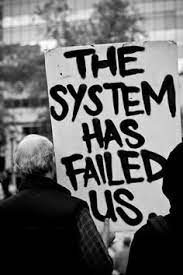The current Jamaica Labour Party (JLP) Administration has, over the past few years, talked a big game as it relates to the environment. The Government congratulates itself on the boundaries of the Cockpit Country, touts the expansion of the nature reserves which now include large parts of our coast and pats itself on the back over the mangrove reclamation projects.
Its chief talking point, however, remains pushing – with most of the heavy work done by Mia Mottley and Barbados, truth be told – for global institutions to put up real money so Small Island Developing States (SIDS) can prepare for the inevitable impacts of climate change and global warming.
The past month, up to the time of writing, has seen the nation’s environmental credentials come under scrutiny both at home and abroad. First was the sitting of the International Seabed Authority (ISA) which met to debate whether it should outright ban deep-sea mining or if it should investigate and, if possible, put in regulations so deep-sea mining is both feasible and safe.
With the headquarters of the ISA being in Kingston, the foreign dignitaries were also met by international protesters who pointed out the potential damage such a move could have.
The Government has been coy on this matter when pressed as to its stance – is it for or against deep-sea mining? The Administration states that it is asking for a debate around the feasibility of deep-sea mining, and whatever the decision — whether it’s banned or regulated — it will abide by it..
A good answer, but not the answer to the question, which is strictly binary and demands a yes or no response. That is political double-speak. Anyone who has been exposed to people who think and are in positions of power understands this. The unspoken, the unsaid is loud and gives us our answer: the Government is for deep sea mining, scared to say it, but willing to back an initiative — the feasibility study — which is championed by the countries and companies that have a desire to mine the seabed.
Anyone who has witnessed the steady degradation of our mountainsides and plains for mineral, limestone and gypsum must have the faith of saints if they believe that our Government, either party, will demand that deep-sea mining be done in anything coming close to moderation.
Issues of the Government’s environmental credentials raised their head again, this time in the form of a fish kill in the Rio Cobre caused by a discharge of effluent by Windalco. The discharge has affected most of St Catherine, and large parts of Kingston and St Andrew as they get up to 40 per cent of their water from the river. It has affected thousands of lives directly and indirectly as those who depend on the river for work, washing, water and everything else that a river provides now have limited or no access to the river lest they become sick due to the toxins in the water.
The Government has stated loudly that it will be acting, especially since this is so close to Independence Day and is a black eye to the nation. Little mention is made of the fact that this is the third fish kill caused by effluent discharge which Windalco has been fingered for during the life of this Administration. Few, if any questions, have been asked about the performance bond Windalco has to pay and which the Government is drawing down on to pay for this. Questions such as, is it enough to fully deal with the problem or is it large enough in its current form to act as a deterrent are not raised.
When pressed if the National Environment and Planning Agency (NEPA) has ever revoked the licence of Windalco the answer was no. In what looked like a rushed attempt to stem rising complaints the Government announced that the licence was suspended, the performance bond drawn down upon and Windalco will be taken to court.
In any normal society, this would be a cause for celebration, but this is Jamaica, and we quickly realise that Windalco has been sued before and keeps on keeping on. Has the Administration thought of closing this entit, which is either unable or unwilling to abide by local environmental regulations? We know the answer, though we dare not speak it, so we wait with bated breath for the next discharge and posturing by the Government because this is a big provider of foreign exchange and a decent employer of people in the region.
As the Administration trumpets the success of half measures with Windalco, we are all supposed to have forgotten — like children — that the State still has done nothing with Bengal mining which is not only set to begin operations on a key water table, but also failed, at least up to March this year, to pay the performance bond. The bond, as we all know — especially thanks to this fish kill — is to be drawn from to deal with any environmental damage. How does any flat refusal to pay the performance bond with no repercussions help burnish the Government’s image as eco-warriors?
The double-speak, though, which has immediate-term killer consequences is the Government’s actions with mangroves. This Administration, like previous ones, wastes no time in bigging up its mangrove restoration projects while also lavishing us with the number of successful transplants.
This is good, as a nation losing coastline, fisheries and so on it is good that mangroves, which act as storm blockers and fish nurseries, are being restored and replenished, hats off for the initiatives. The problem is that, while doing this noble gesture and patting itself on the back all Administrations waste no time allowing hotel licenses, some of which necessitate the destruction of the mangroves.
A fully mature mangrove takes one to two years to grow; how much coastline will be lost by then? How many livelihoods will be lost as coastal erosion, storm surges, fish nursery destruction and the like take place as we wait for the mangroves to grow?
The wholesale destruction of mangroves for hotels and the creation of ports for cruise ships are just further proof that whatever talk this Government makes, it is not serious about the environment.
We are among the nations set to be hit hardest by climate change and we are already feeling the first impacts of this event, as seen with the increased heat and change in rainfall. Yes, we alone cannot change the situation and yes, we need to press the big polluters to stop and look after those being affected. However, that does not mean that we should go ahead and engage in the destruction of our environment in the name of ‘progress’ that will only mean our destruction in the not-too-distant future. We need to put a pause on the environmentally destructive habits we have. Not all can be done away with, but we must be able to lessen the damage we do and move away from the sweet talk that we get currently. Anything less than actively preserving and replenishing our ecosystem is condemning us to doom — a more immediate and harsh doom than has been predicted by the scientists, and no amount of double-speak can hide those realities.



